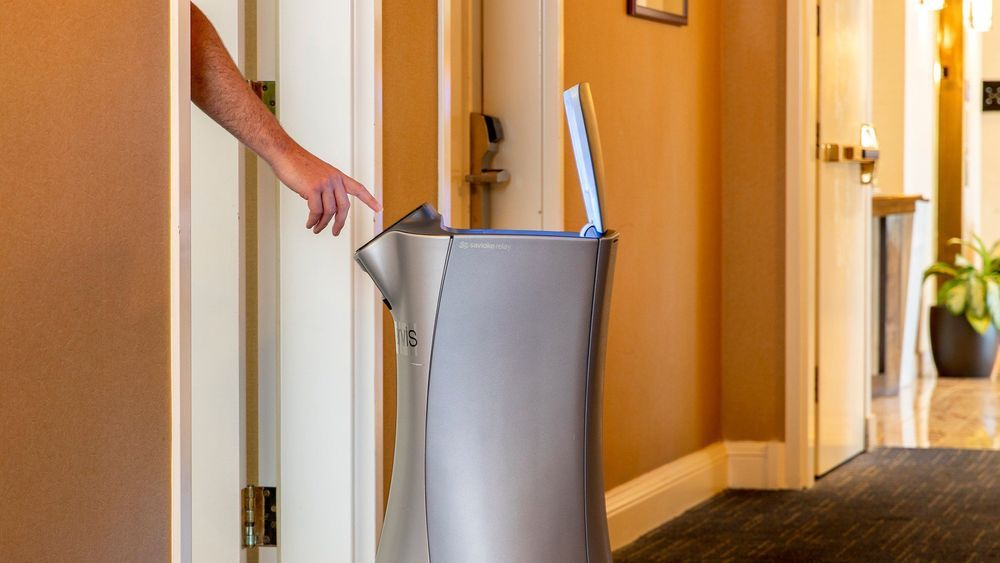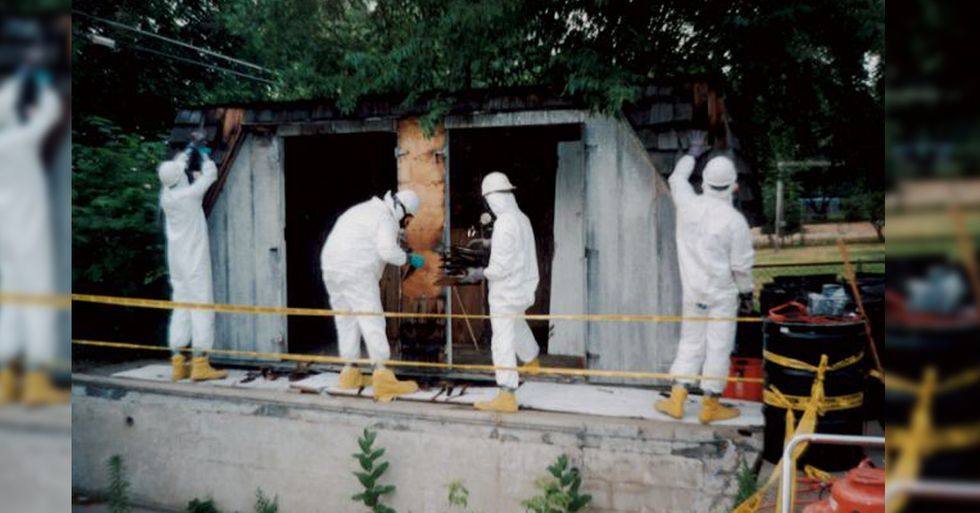An aerial combat simulation between an F-16 pilot and an artificial intelligence algorithm is part of the government-sponsored “Alpha Dog Trials” on Aug. 20.
Category: government – Page 139

4 Palliative Canadians approved for end of life psilocybin therapy through section 56(1) ; First legal medical exemptions for psilocybin in Canada since 1970’s
Four Canadians battling incurable cancer have been approved by the Minister of Health, Patty Hajdu, to use psilocybin therapy in the treatment of their end-of-life distress. These 4 patients mark the first publicly-known individuals to receive a legal exemption from the Canadian Drugs and Substances Act to access psychedelic therapy, and the first known patients to legally use psilocybin since the compound became illegal in Canada in 1974. The decision comes after over 100 days of waiting for a response.
“ I would like to personally thank the Hon. Minister Hajdu and the team at the Office of Controlled Substances for the approval of my section 56 exemption. This is the positive result that is possible when good people show genuine compassion. I’m so grateful that I can move forward with the next step of healing” says Thomas Hartle, one the section 56 applicants battling cancer, from Saskatoon Saskatchewan.
Laurie Brooks, another applicant from British Columbia facing end-of-life distress states: “I want to thank the Health Minister and Health Canada for approving my request for psilocybin use. The acknowledgement of the pain and anxiety that I have been suffering with means a lot to me, and I am feeling quite emotional today as a result. I hope this is just the beginning and that soon all Canadians will be able to access psilocybin, for therapeutic use, to help with the pain they are experiencing, without having to petition the government for months to gain permission. Thanks also to TheraPsil for helping the four of us in this fight. To Thomas Hartel and the other two patients – I think of you often and wish you only good things, especially good health!”

Millions of Americans Have Lost Jobs in the Pandemic — And Robots and AI Are Replacing Them Faster Than Ever
Many organizations will likely look to technology as they face budget cuts and need to reduce staff. “I don’t see us going back to the staffing levels we were at prior to COVID,” says Brian Pokorny, the director of information technologies for Otsego County in New York State, who has cut 10% of his staff because of pandemic-related budget issues. “So we need to look at things like AI to streamline government services and make us more efficient.”
For 23 years, Larry Collins worked in a booth on the Carquinez Bridge in the San Francisco Bay Area, collecting tolls. The fare changed over time, from a few bucks to $6, but the basics of the job stayed the same: Collins would make change, answer questions, give directions and greet commuters. “Sometimes, you’re the first person that people see in the morning,” says Collins, “and that human interaction can spark a lot of conversation.”
But one day in mid-March, as confirmed cases of the coronavirus were skyrocketing, Collins’ supervisor called and told him not to come into work the next day. The tollbooths were closing to protect the health of drivers and of toll collectors. Going forward, drivers would pay bridge tolls automatically via FasTrak tags mounted on their windshields or would receive bills sent to the address linked to their license plate. Collins’ job was disappearing, as were the jobs of around 185 other toll collectors at bridges in Northern California, all to be replaced by technology.
Machines have made jobs obsolete for centuries. The spinning jenny replaced weavers, buttons displaced elevator operators, and the Internet drove travel agencies out of business. One study estimates that about 400,000 jobs were lost to automation in U.S. factories from 1990 to 2007. But the drive to replace humans with machinery is accelerating as companies struggle to avoid workplace infections of COVID-19 and to keep operating costs low. The U.S. shed around 40 million jobs at the peak of the pandemic, and while some have come back, some will never return. One group of economists estimates that 42% of the jobs lost are gone forever.

Sanofi, GSK Pursue COVID-19 Vaccine Trials with $2.1B from “Warp Speed”
Sanofi and GlaxoSmithKline (GSK) will be awarded up to $2.1 billion by the U.S. Departments of Health and Human Services (HHS) and Defense (DoD) toward development and manufacturing of the recombinant protein-based COVID-19 vaccine being produced by the companies, they and the U.S. government said.
HHS and DoD are providing the funding as part of Operation Warp Speed—the program through which President Donald Trump’s administration has committed the nation to delivering 300 million vaccine doses protecting against SARS-CoV-2 by January 2021.
“The portfolio of vaccines being assembled for Operation Warp Speed increases the odds that we will have at least one safe, effective vaccine as soon as the end of this year,” HHS Secretary Alex Azar II stated.

Airships Are No Longer a Relic of the Past; You Could Ride in One by 2023
To that end, Barry Prentice, who leads the Canadian company Buoyant Aircraft Systems International, hopes to use airships to transport pre-built structures for schools and housing to remote parts of Canada that lack good roads.
And earlier this year, French airship company Flying Whales (I mean, how can you not adore that name?) received $23 million in funding from the government of Quebec to build cargo-carrying Zeppelins.
Given our current pandemic-dominated reality, it’s hard to imagine a future of seamless global travel of any kind, much less on an airship. But that future will, thankfully, arrive (though when is anyone’s guess). As calls for climate action get louder and the costs associated with airships drop—as the cost of any new technology tends to do with time—we may find ourselves going retro and being ferried across the globe by giant helium-filled balloons.

The Panopticon Is Already Here
Despite China’s considerable strides, industry analysts expect America to retain its current AI lead for another decade at least. But this is cold comfort: China is already developing powerful new surveillance tools, and exporting them to dozens of the world’s actual and would-be autocracies. Over the next few years, those technologies will be refined and integrated into all-encompassing surveillance systems that dictators can plug and play.
Xi Jinping is using artificial intelligence to enhance his government’s totalitarian control—and he’s exporting this technology to regimes around the globe.


Microsoft in talks to buy TikTok
Bytedance, the Chinese owner of TikTok, is facing mounting pressure from the US government to sell the video sharing app or risk being blacklisted in the country.
\t\t\tJournalists in 50+ countries explore developments in global commerce from every perspective.
\t\t\tFor Premium subscribers, we offer our dedicated ‘FT Free Trade’ newsletter every Tuesday and Thursday.
\t\t.

Exclusive: Chinese-backed hackers targeted COVID-19 vaccine firm Moderna
More from 2020 “The Movie”
Chinese government-linked hackers targeted biotech company Moderna Inc, a leading U.S.-based coronavirus vaccine research developer, earlier this year in a bid to steal valuable data, according to a U.S. security official tracking Chinese hacking activity.
WASHINGTON (Reuters) — Chinese government-linked hackers targeted biotech company Moderna Inc, a leading U.S.-based coronavirus vaccine research developer, earlier this year in a bid to steal valuable data, according to a U.S. security official tracking Chinese hacking activity.

That time a Boy Scout built a nuclear reactor out of common household items
O,.o!
Imagine looking out your window to see an eerie green glow resonating from your neighbor’s shed. Or seeing government trucks being loaded with barrels marked radioactive by men dressed in hazmat suits outside your home.
The residents of Golf Manor, Michigan, don’t have to imagine it, because in 1995, a young teenage boy built a nuclear breeder reactor in his mother’s potting shed, an idea he came up with while working on his Atomic Energy merit badge in attempt to earn Eagle Scout status.
